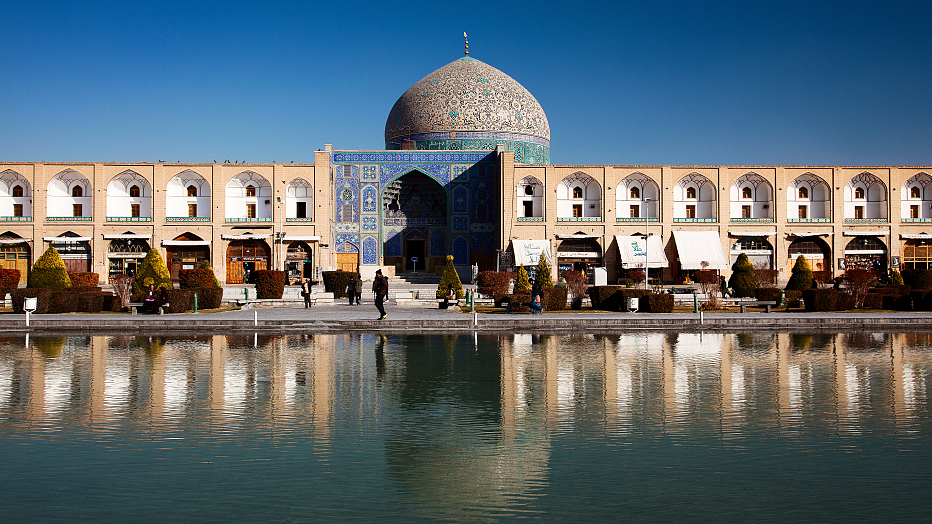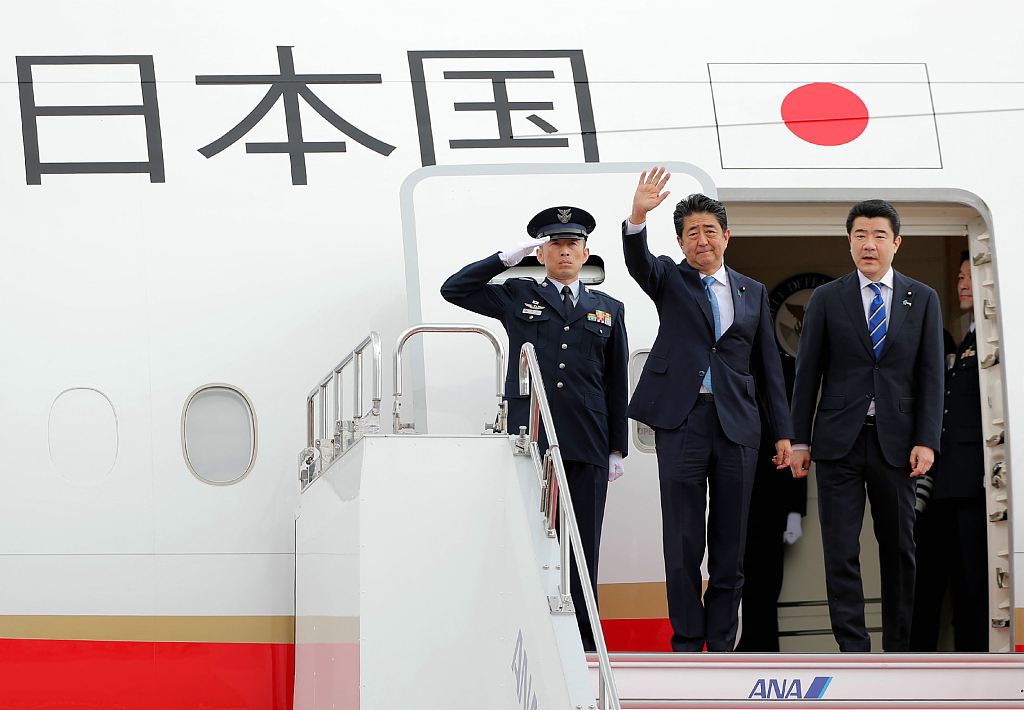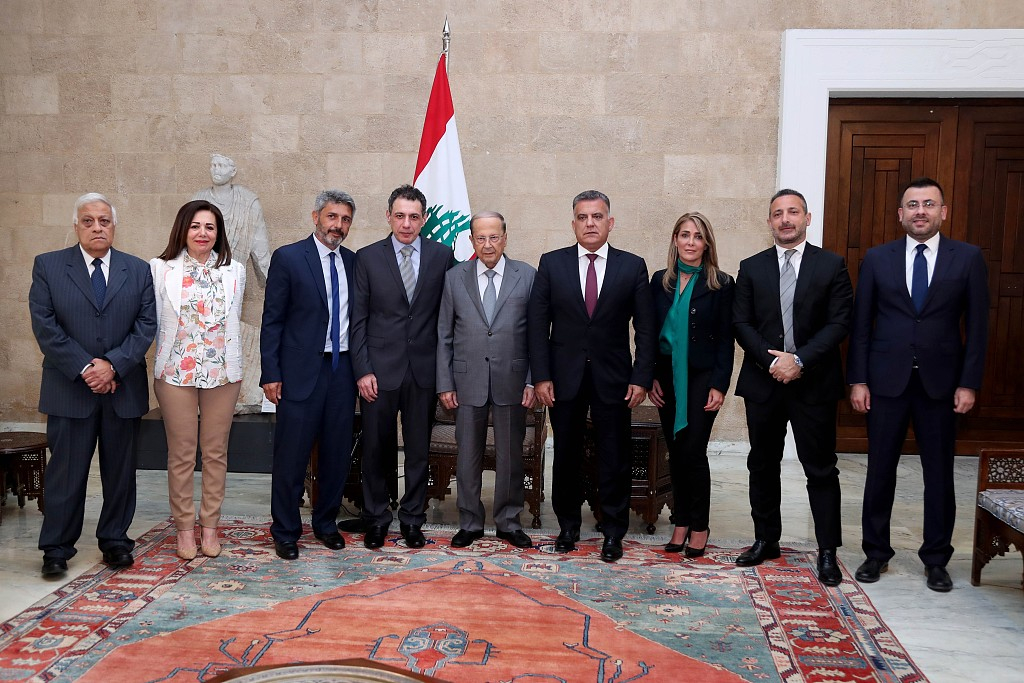

Editor's Note: Bobby Naderi is a journalist, current affairs commentator, documentary filmmaker and member of the Writers Guild of Great Britain. The article reflects the author's opinion and not necessarily the views of CGTN.
A country that has never been good at international relations is sending its prime minister to Iran after 40 years to ease tensions between Tehran and Washington.
Japan has never managed the internal business of other countries. As a key ally of the United States, it has always coordinated its Middle East policies and plans with Washington. It has also refused to buy oil from Iran for fear of defying Washington – although it says it has pushed for imports to continue.
These are not comforting trends. Still, Japanese Prime Minister Shinzo Abe insists he is on a historic mediation mission and that his narrow room for maneuver could manage expectations.
During his talks with U.S. President Donald Trump in Tokyo on May 27, Abe made public his intention to act as an intermediary saying, "Japan would like to do whatever it can. Japan and the U.S. should collaborate closely so that tensions surrounding Iran are lessened and do not result in armed conflict."
This came after Trump had told journalists, "I know that the prime minister and Japan have a very good relationship with Iran, so we'll see what happens. The prime minister has already spoken to me about that. And I do believe that Iran would like to talk. And if they'd like to talk, we'd like to talk also."

Japanese Prime Minister Shinzo Abe (center) waves to well-wishers upon his departure for Iran at Tokyo's Haneda Airport on June 12, 2019. /VCG Photo
Abe is visiting Tehran to meet President Hassan Rouhani and the country's Leader Ayatollah Ali Khamenei Against this backdrop, and in a year that marks the 90th anniversary of Japanese-Iranian relations,
As maintained by Tokyo, the two-day visit is within the framework of historic relations between the two countries, and it should be taken as such. Indeed, it is hard to believe Abe is going his own way on Iran policy, and even harder to believe he could salvage the nuclear deal, otherwise known as Joint Comprehensive Plan of Action (JCPOA), which Tehran signed in 2015 with China, Russia, the UK, France and the U.S plus Germany (also known as P5+1).
The last sentence is careful to guard us against any charge of pessimism. In this account, Abe’s optimistic diplomacy should be encouraged by the international civil society, and Tehran is an accommodating host.
His winning card is the desire by both sides to ease tensions and avoid fight. He can make this case for direct engagement, and that includes proposing general principles and goodwill gestures.
Tehran is only locked in a standoff with Washington after Trump unilaterally withdrew the U.S. from the nuclear deal in 2018 and re-imposed sanctions that were strongly criticized by the remaining signatories to the deal and the United Nations.
Last month, he sent troops and warships to the Persian Gulf, putting military and economic pressure on Iran, including by forcing U.S. allies to stop buying Iran's oil, its biggest export income.

Lebanese President Michel Aoun (center) poses for a photo with Nizar Zakka (4th left), a Lebanese citizen released by Iran who is charged with spying for the U.S. at the Baabda Palace in Beirut, Lebanon on June 11, 2019. /VCG Photo
Against this backdrop, Abe might have won Trump's blessing to ferry messages between the two arch enemies, but there is no need to call on Iran. The country has always tried to ease tensions with Washington and allies in the region. Tehran has no plans to close the Strait of Hormuz in the Persian Gulf to stop Washington’s allies from exporting oil to world markets.
Put differently, there was no need for Trump to send Abe to ease tensions. He is not an international statesman, and given his disappointing diplomatic track record, his shutter diplomacy or mediation trip is an uphill battle he cannot win.
For the record, under pressure from Washington, Abe's visible policy has been to refuse to formally end Japan’s World War Two hostilities with Russia, and conclude a peace treaty that depends on the fate of the islands of the South Kuril Ridge. He refuses to guarantee that the islands won’t be occupied by American forces.
More still, Abe traveled to Iran in 1983, when he accompanied his father to mediate during the Iran-Iraq war. His late father's efforts failed. The Trump administration officials have also downplayed expectations for any breakthrough. So it's naïve to believe Abe can now suddenly play an active role in the long-running impasse between Tehran and Washington.
Then again, if Abe insists and wants to put it to a real-world test for limited results, let us be optimists and suppose his luck holds out. If that happens, he could keep with his optimistic diplomacy, boost his credibility when he hosts the G20 summit in Japan later this month, and win elections this summer – even if meeting this challenge requires kinds of international arrangements and diplomacy that are still foreign to Tokyo's habits as a key Washington ally.
To see what is missing from such a judgment and to show how much he wants to end tensions, Abe needs to demonstrate well-meaning and independence from Washington by convincing his golf partner to return to the nuclear deal and ease sanctions beforehand, something Trump emphatically resists and Tehran condemns as "economic terrorism."
Only then can he expect a quick outcome from the high-stakes visit, including a de-escalation of tensions and urgently needed U.S.-Iran talks. To bring this into line with reality, Tehran will only agree to Abe’s mediation for a direct sit-down if there is a gesture from Trump.
(If you want to contribute and have specific expertise, please contact us at opinions@cgtn.com.)

Copyright © 2018 CGTN. Beijing ICP prepared NO.16065310-3
Copyright © 2018 CGTN. Beijing ICP prepared NO.16065310-3